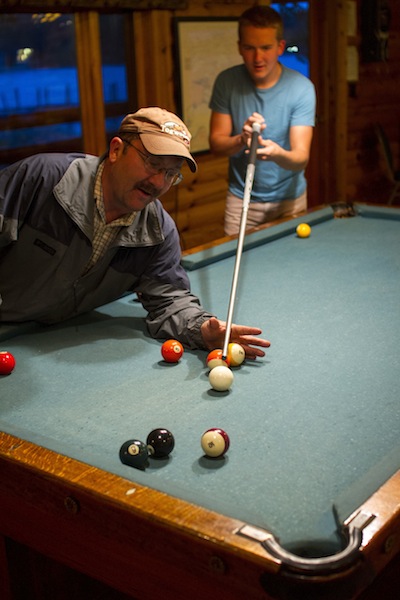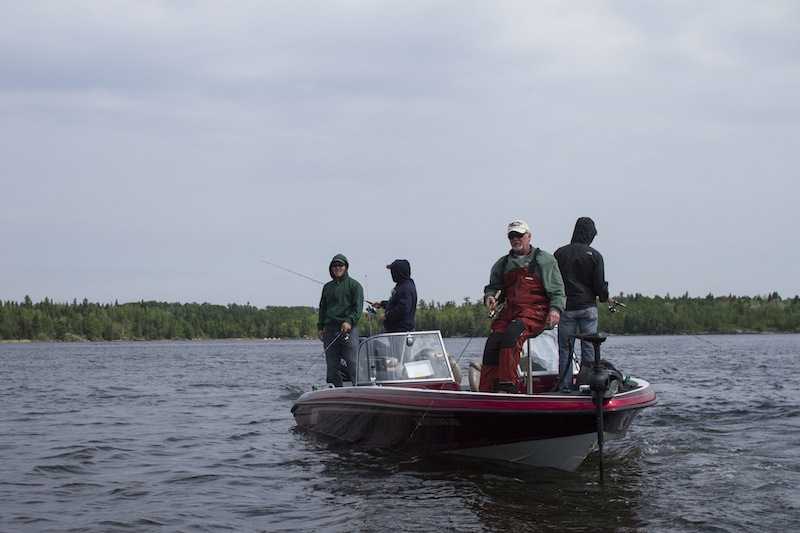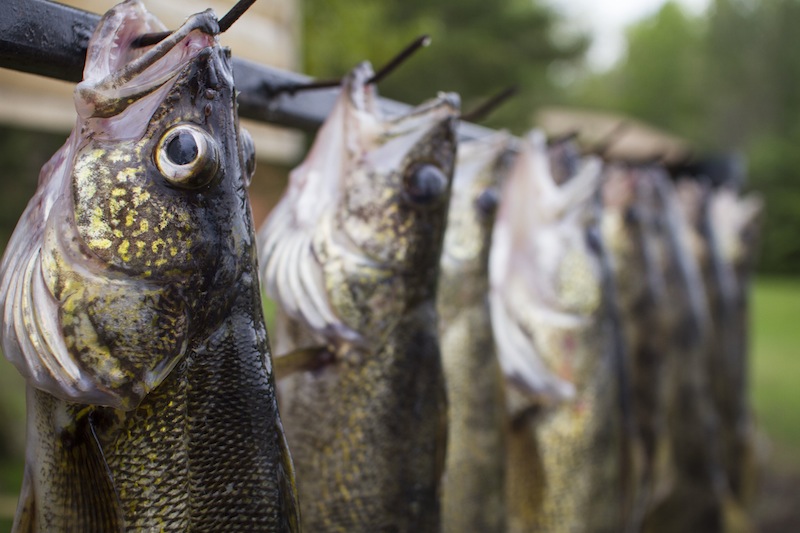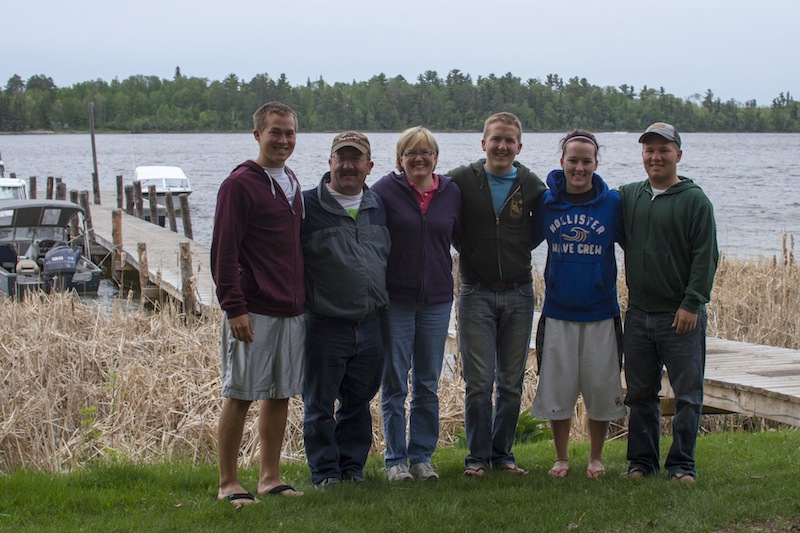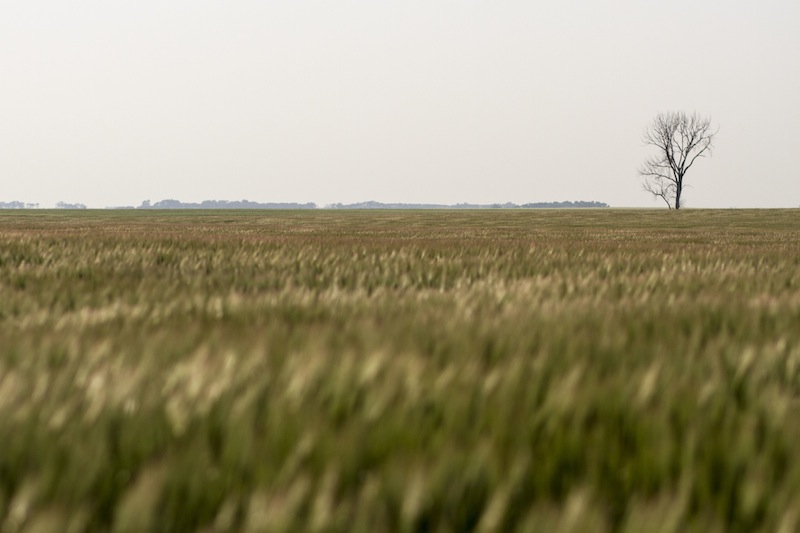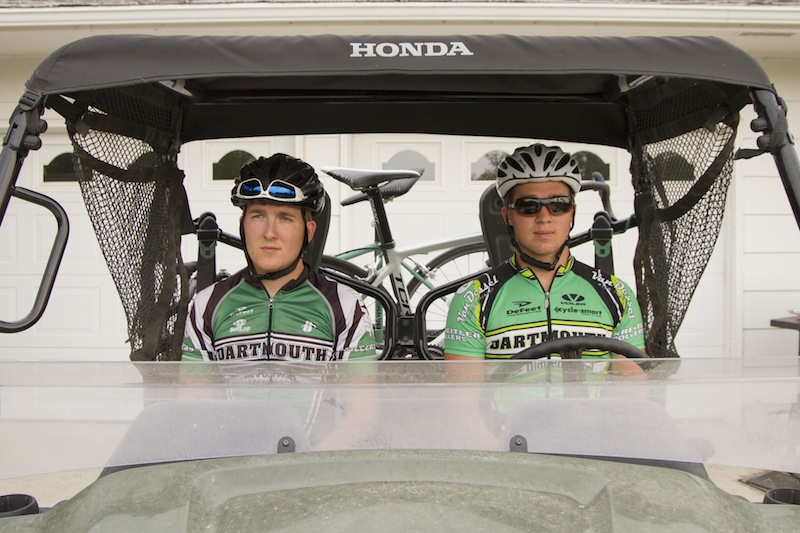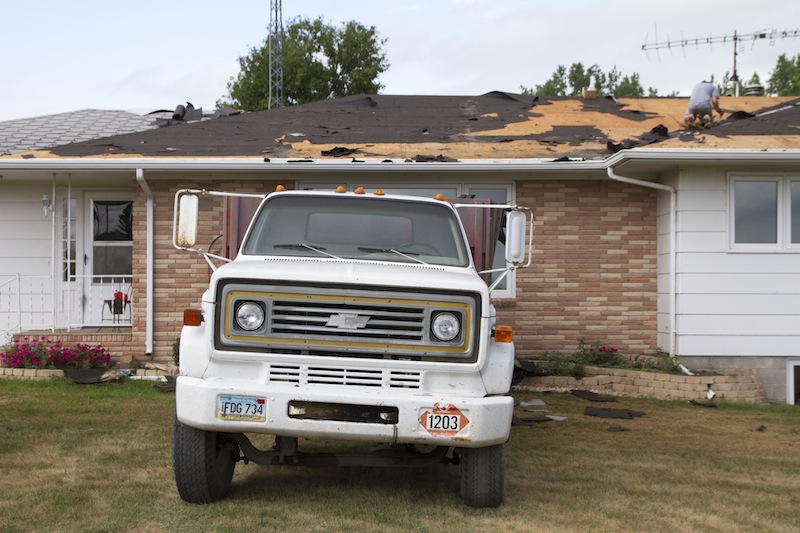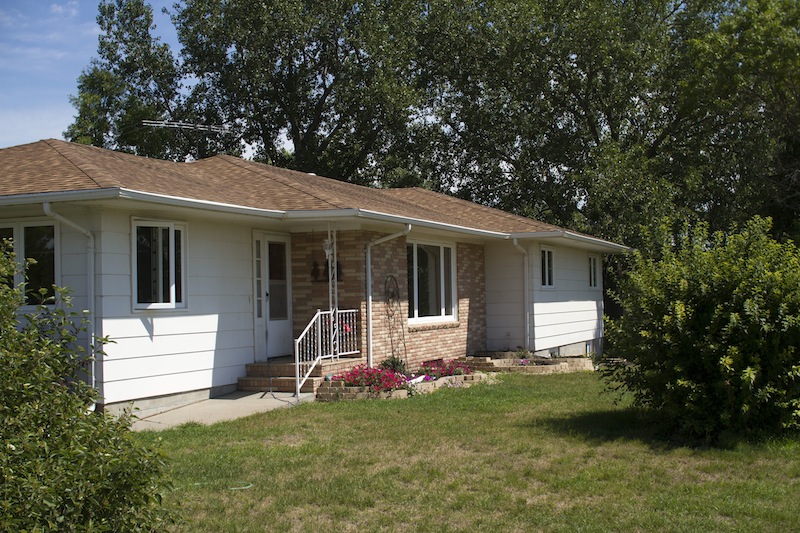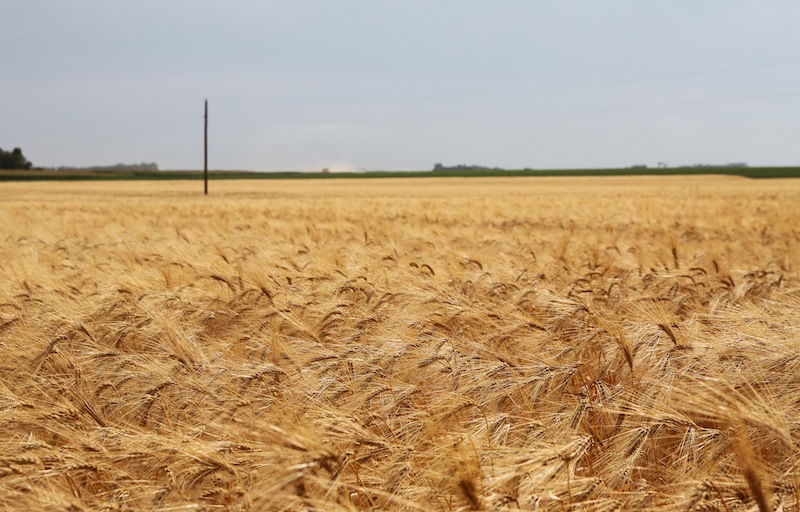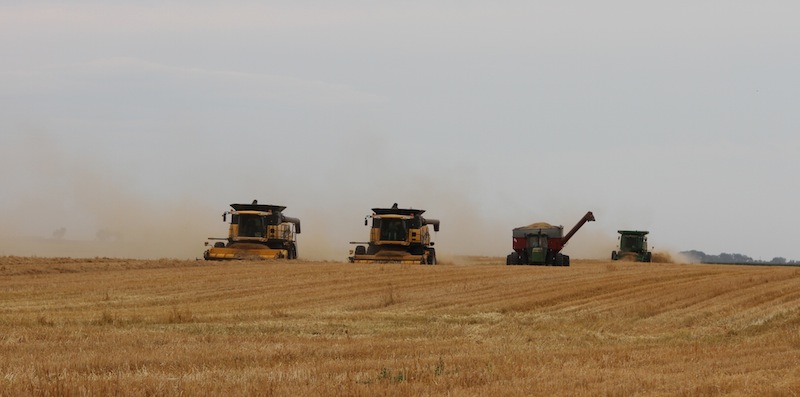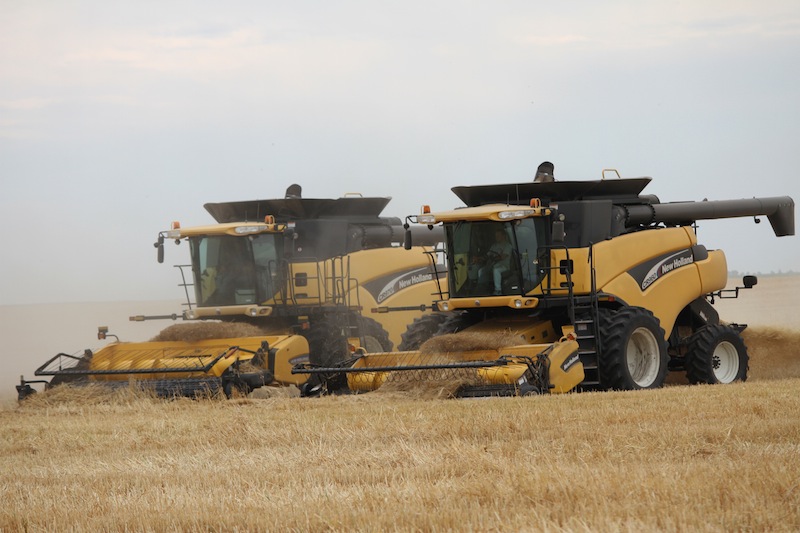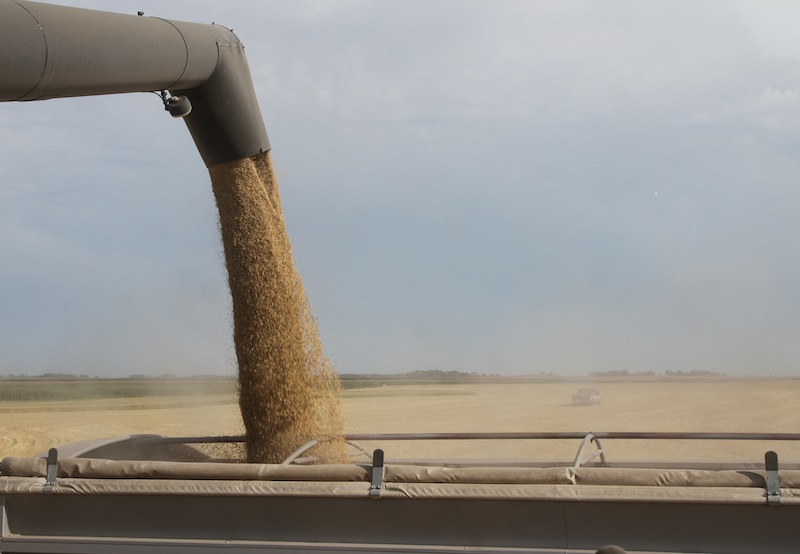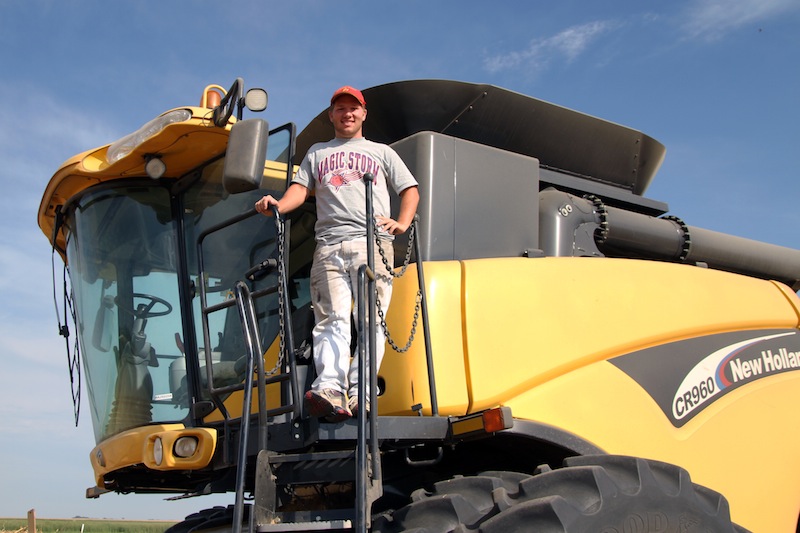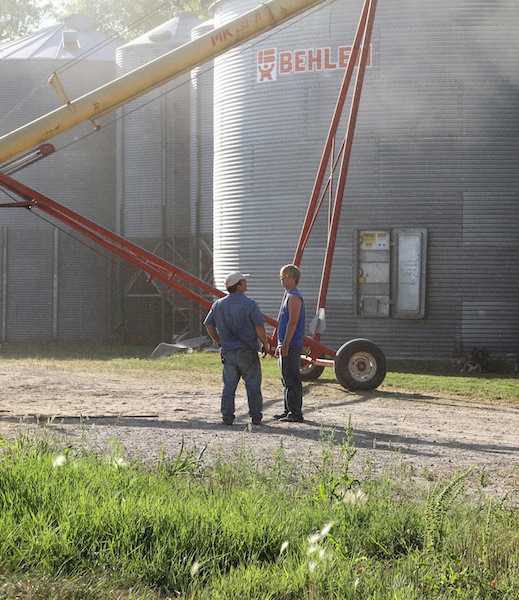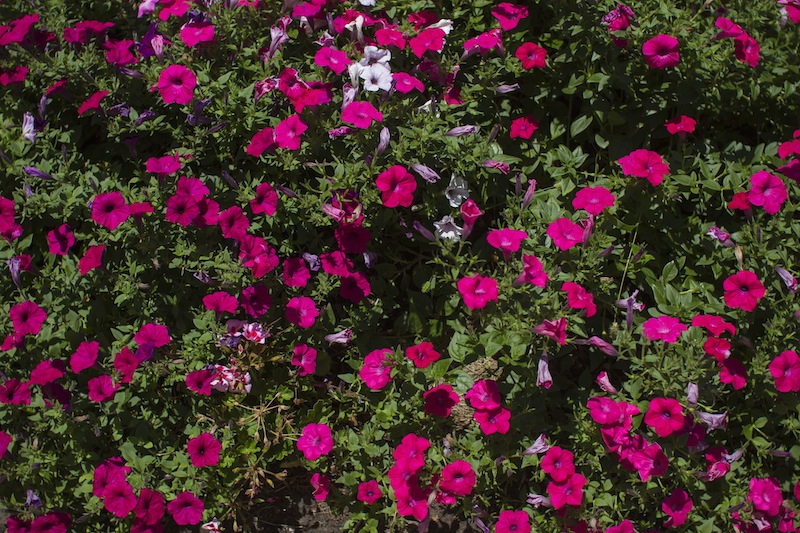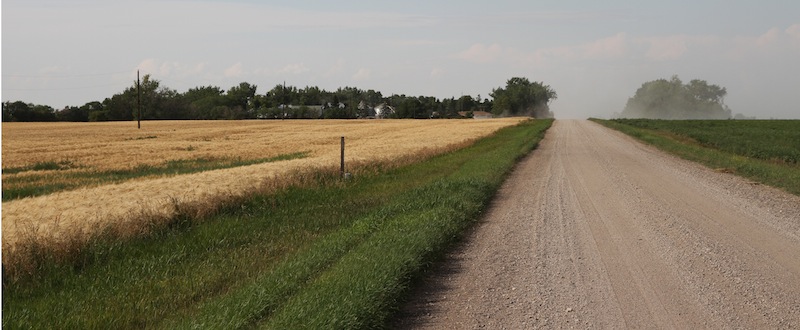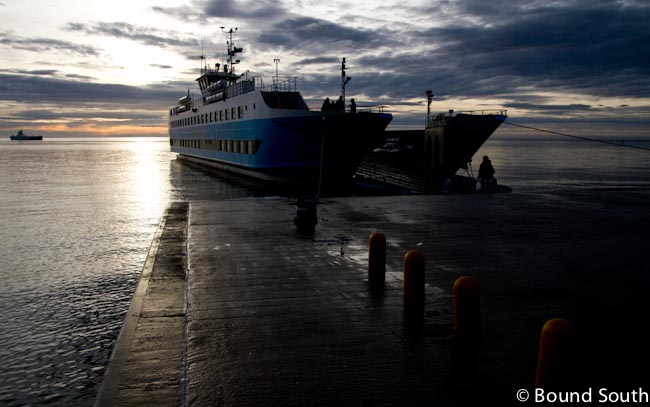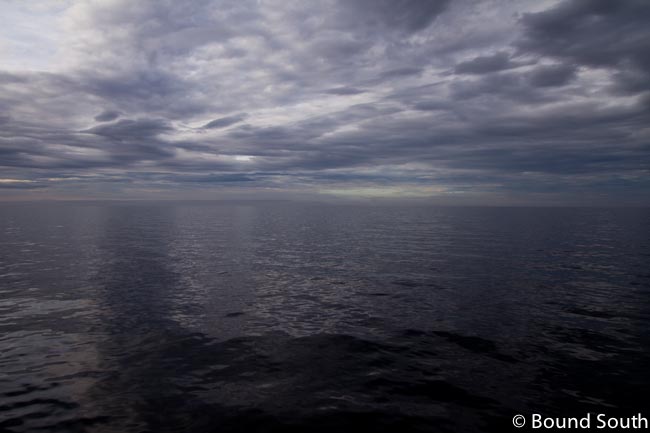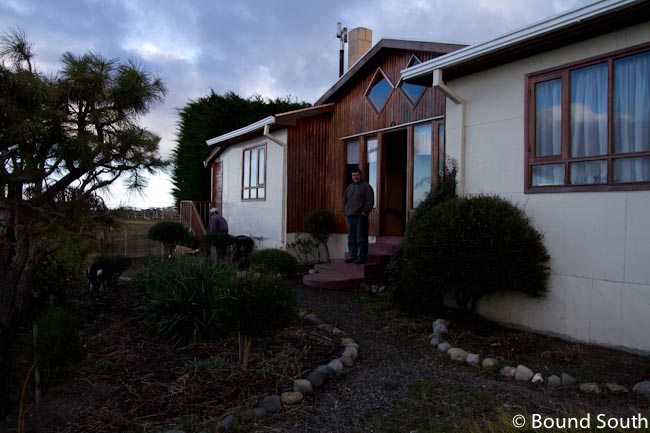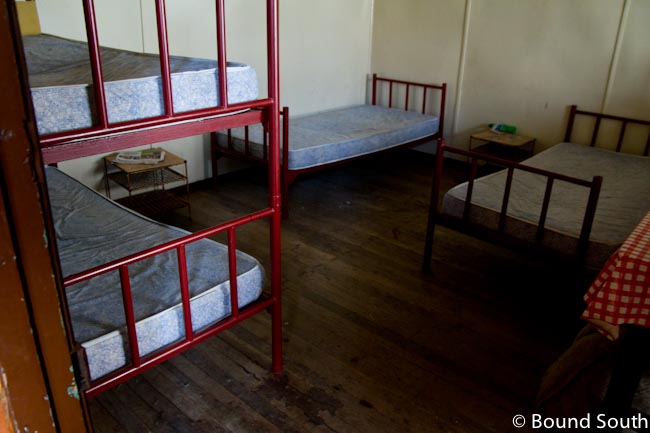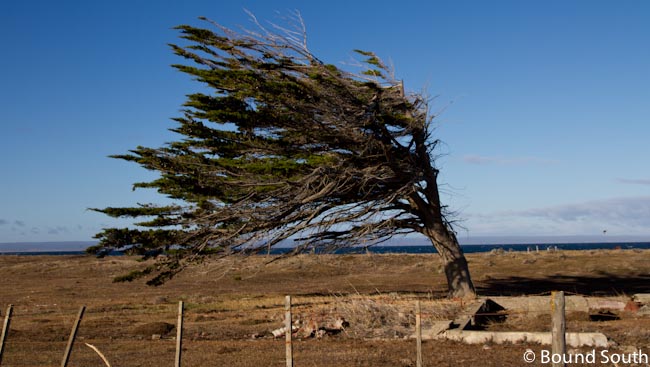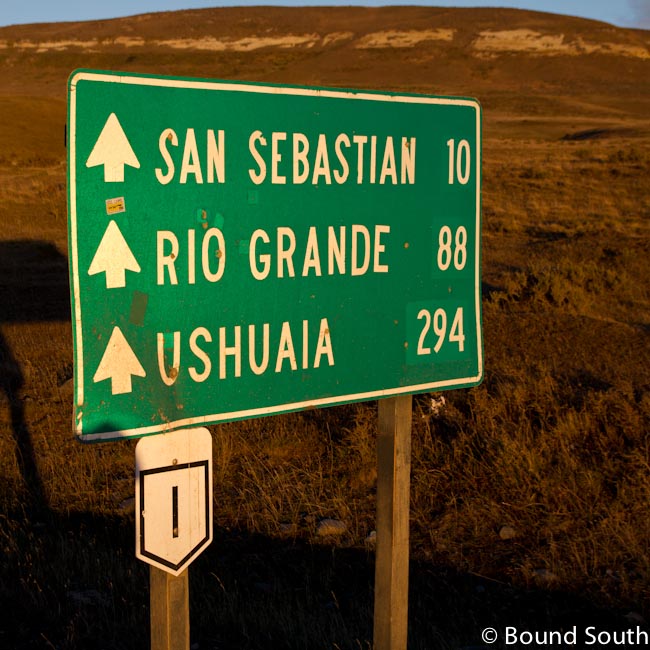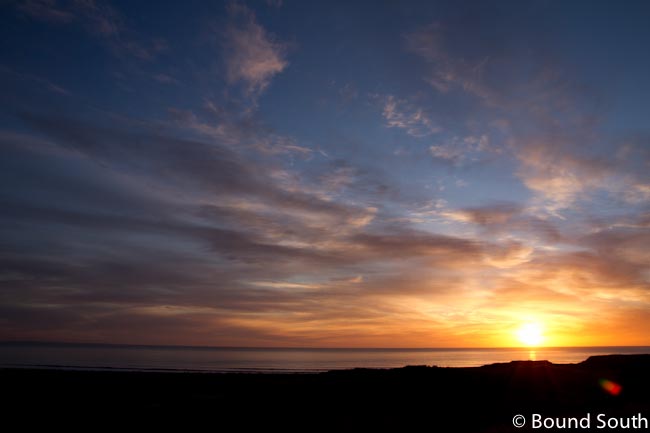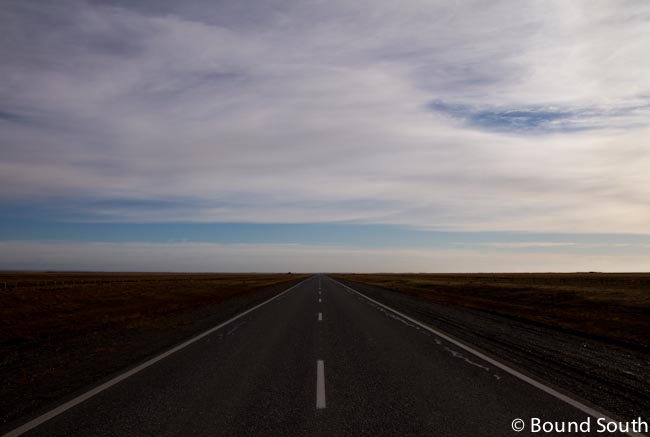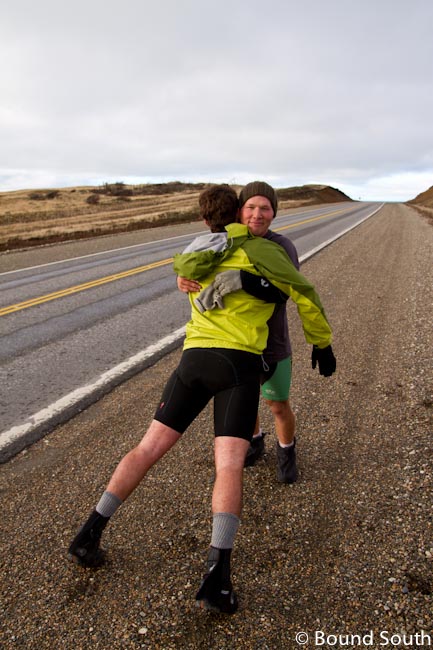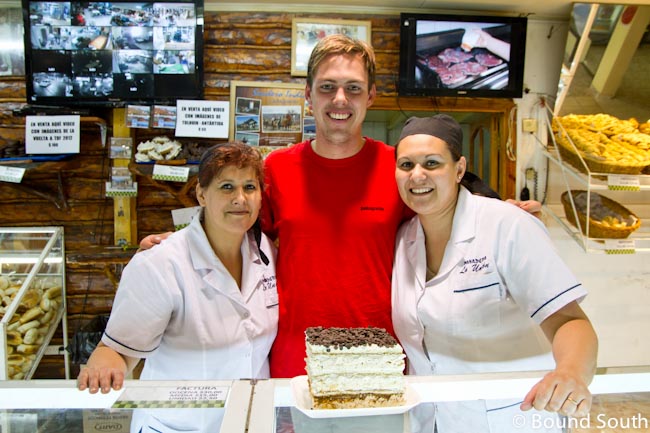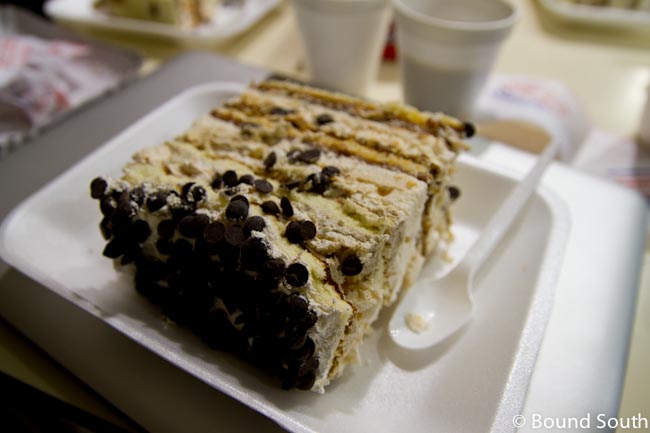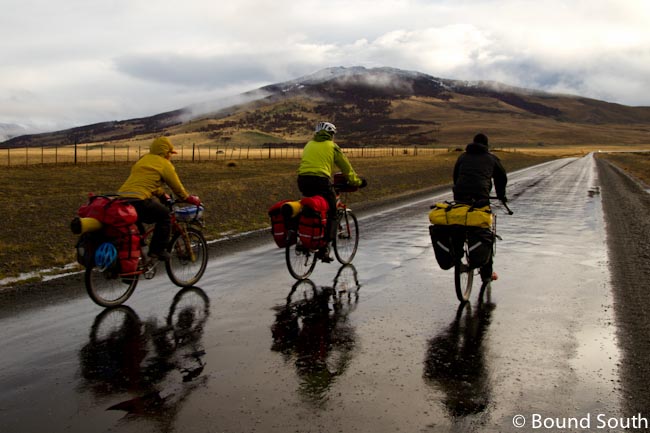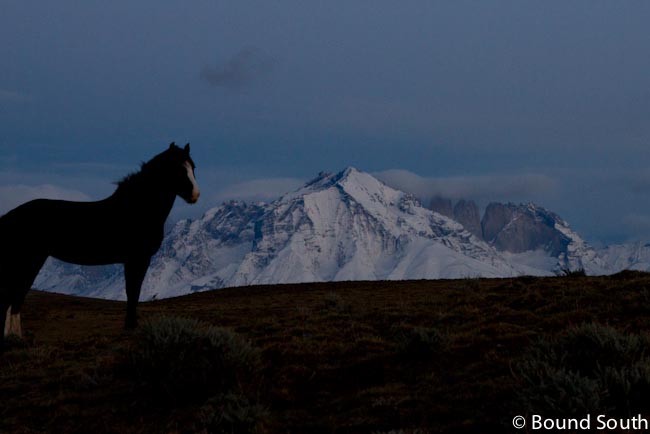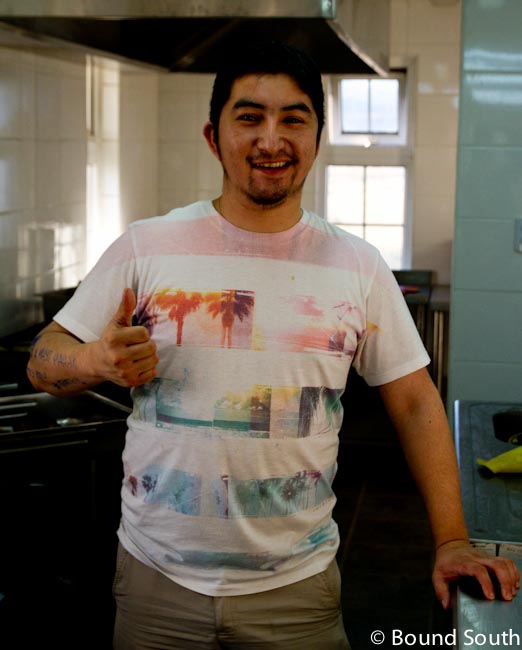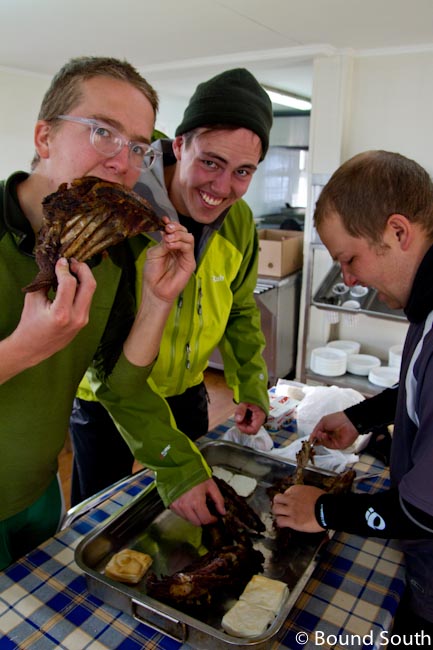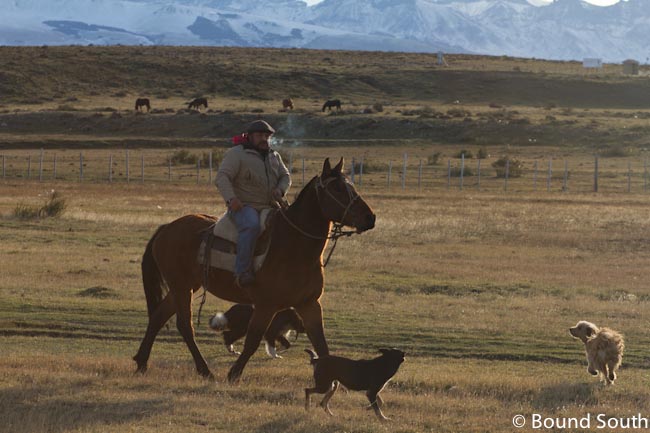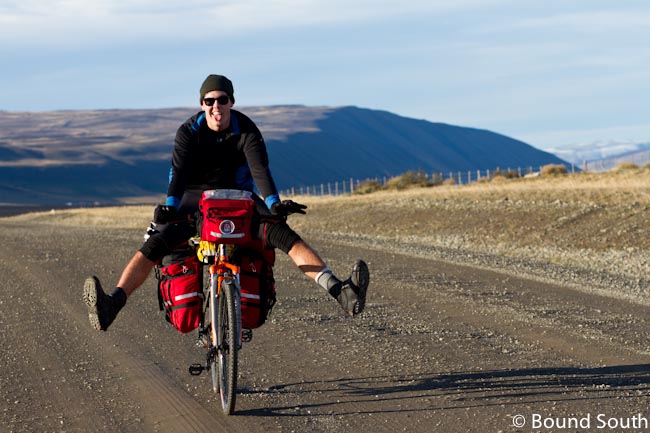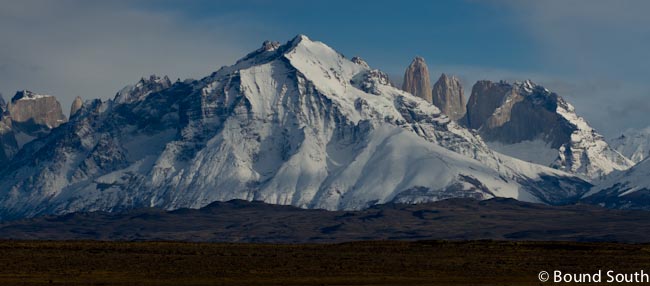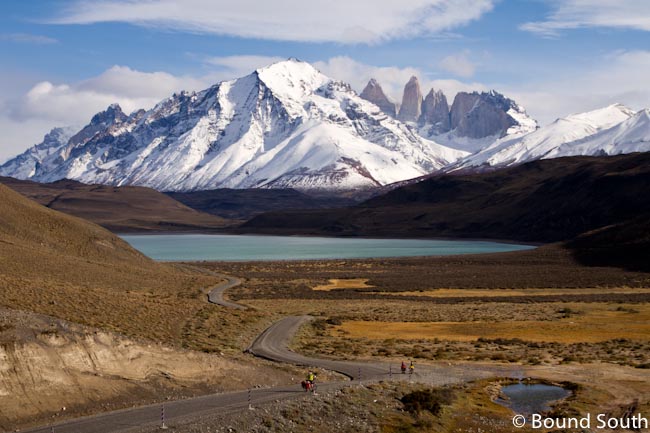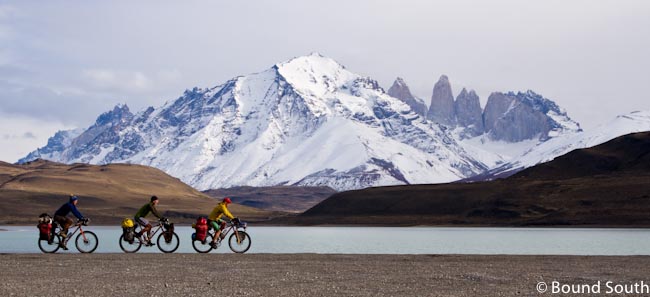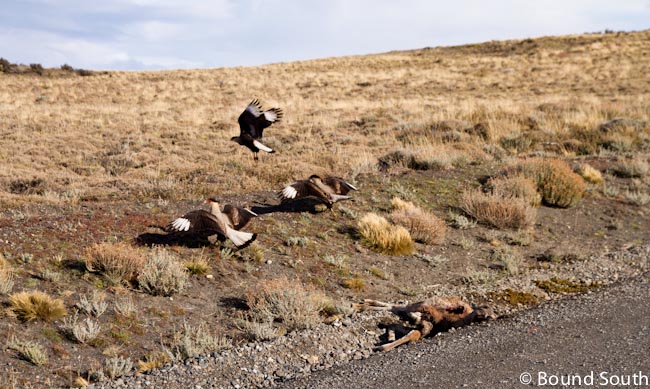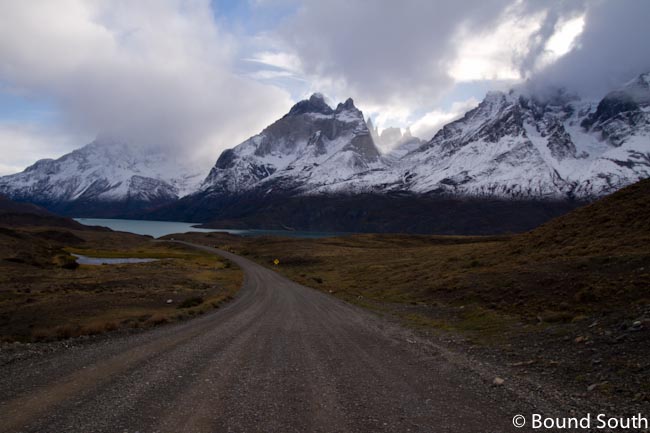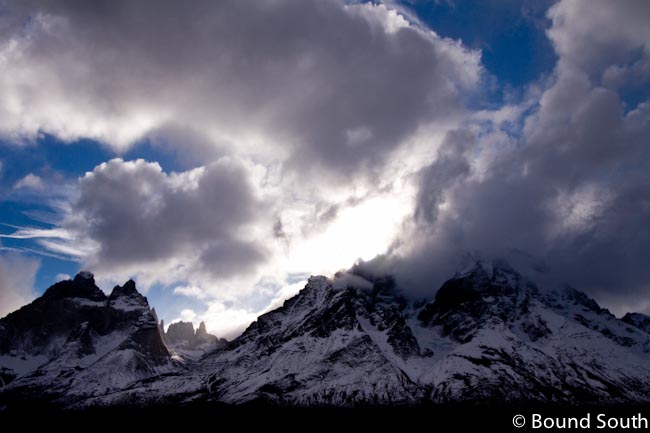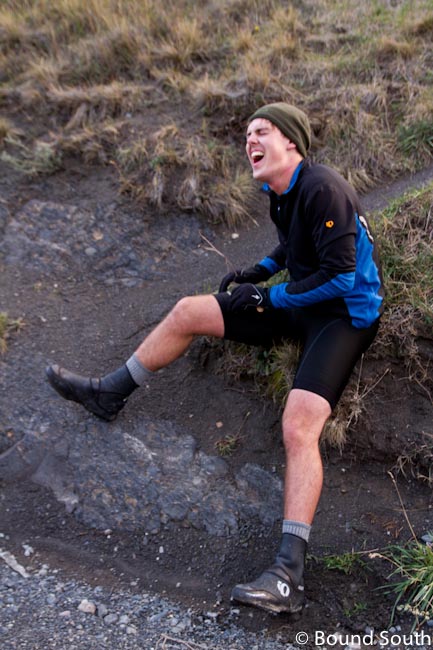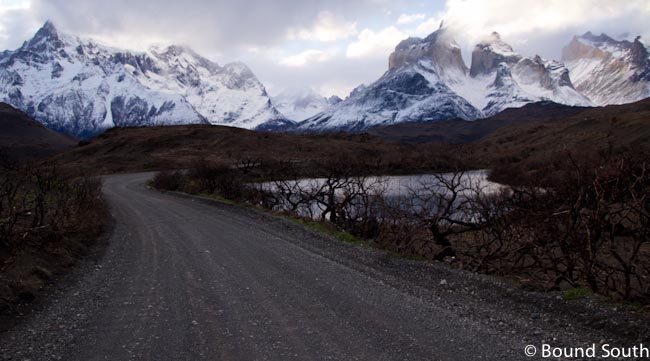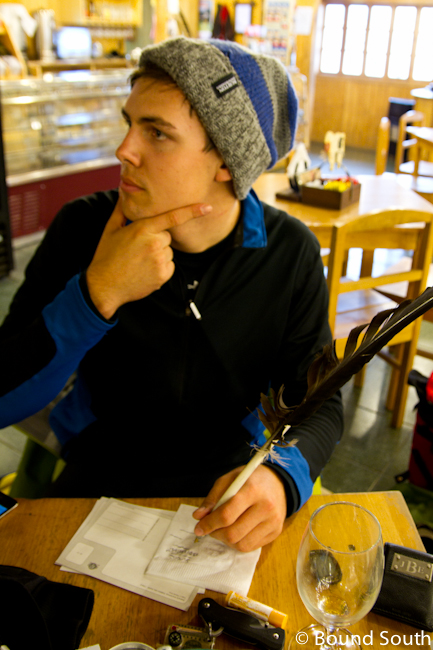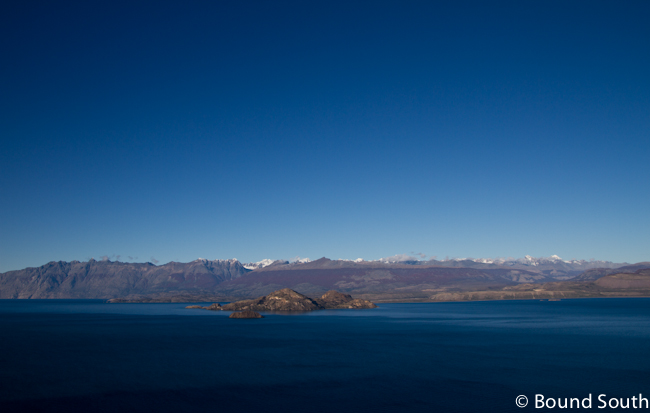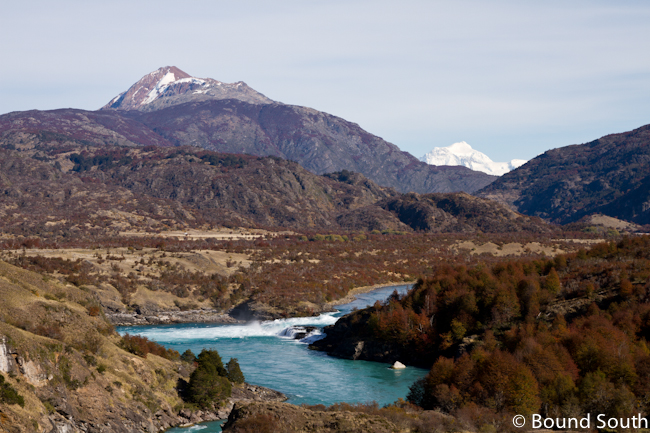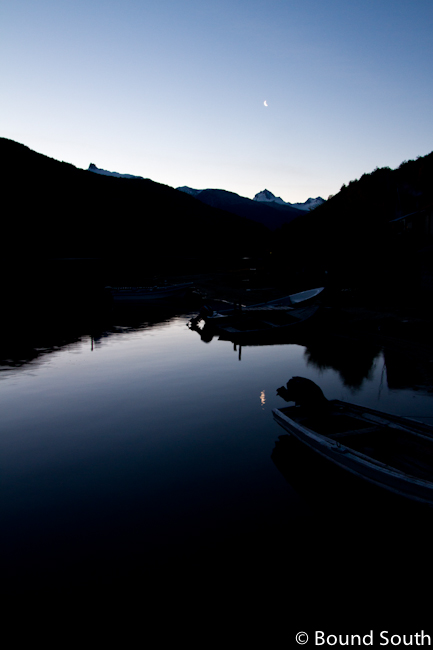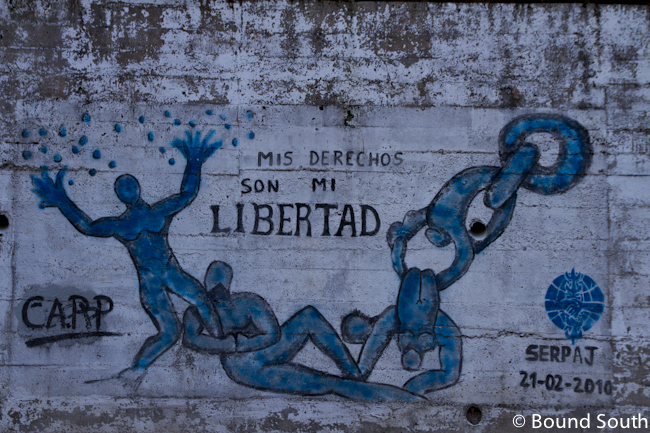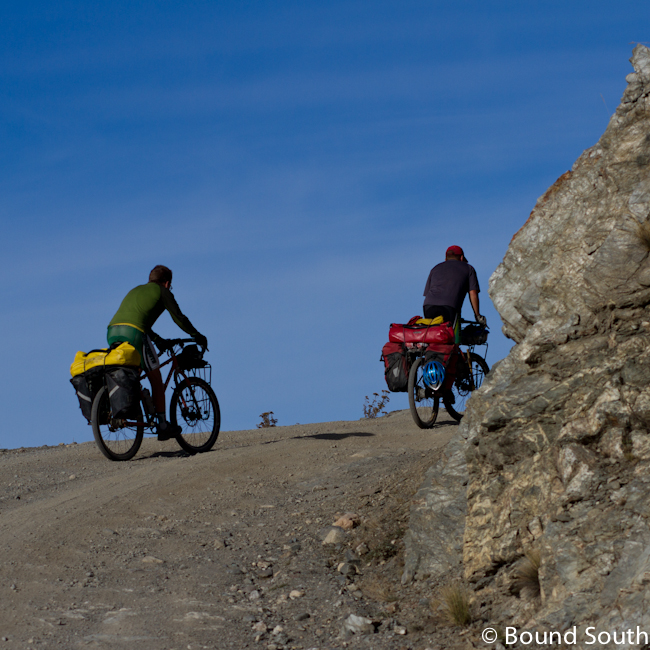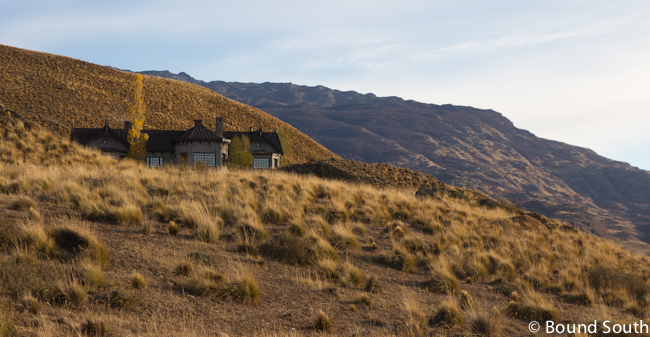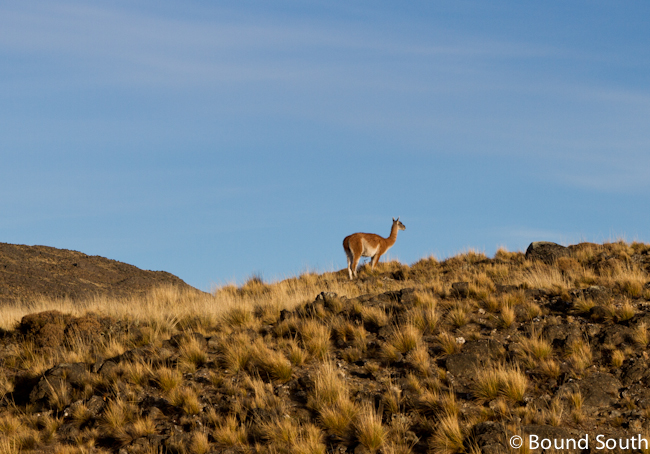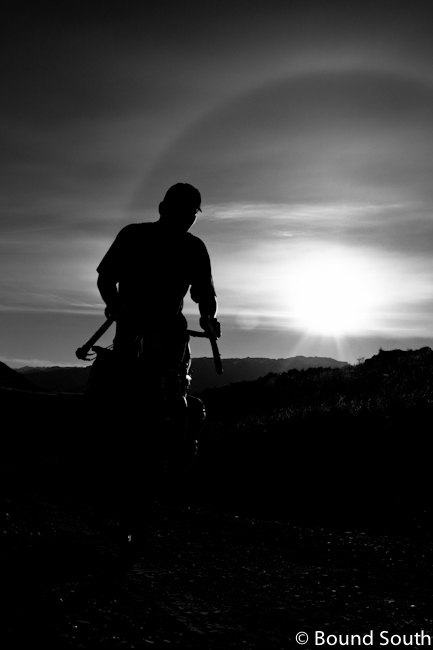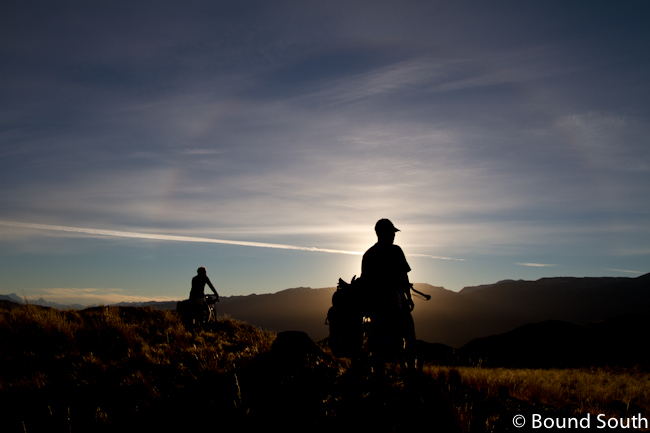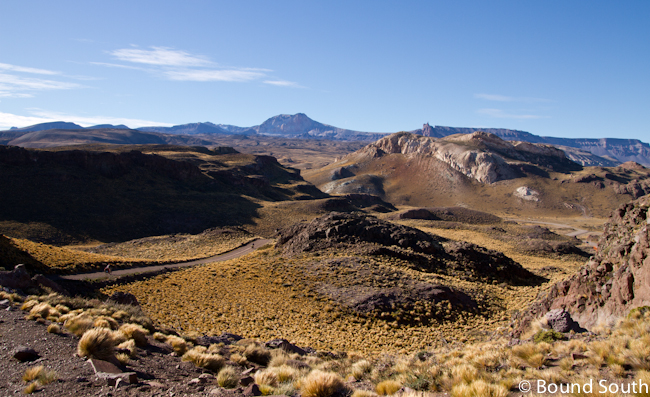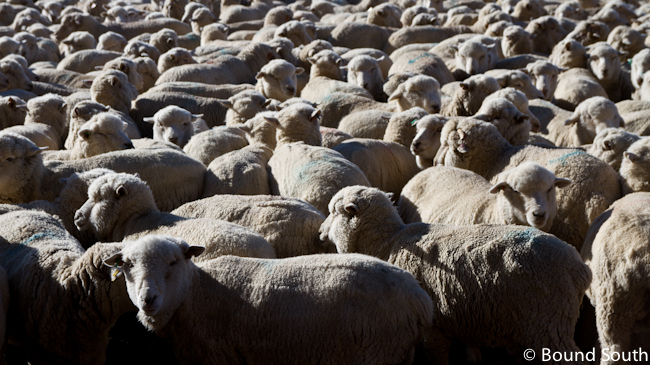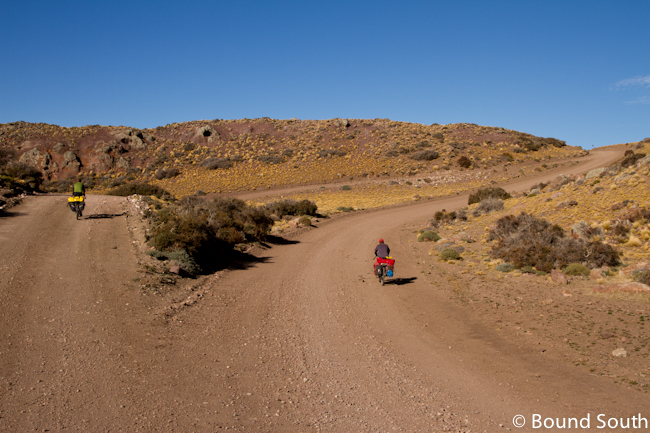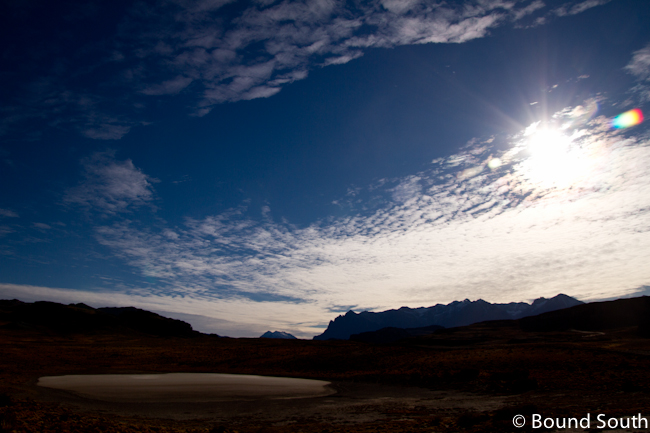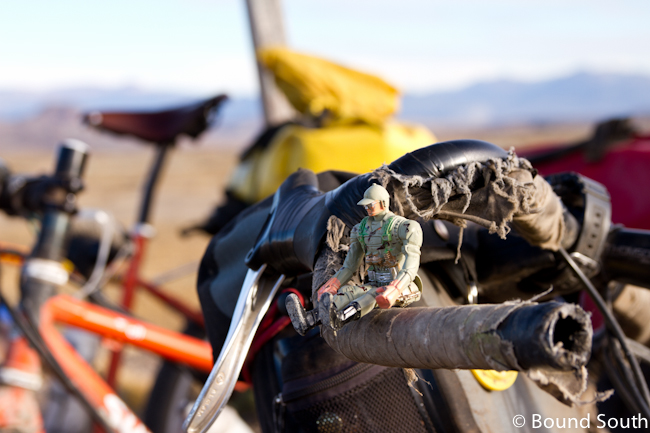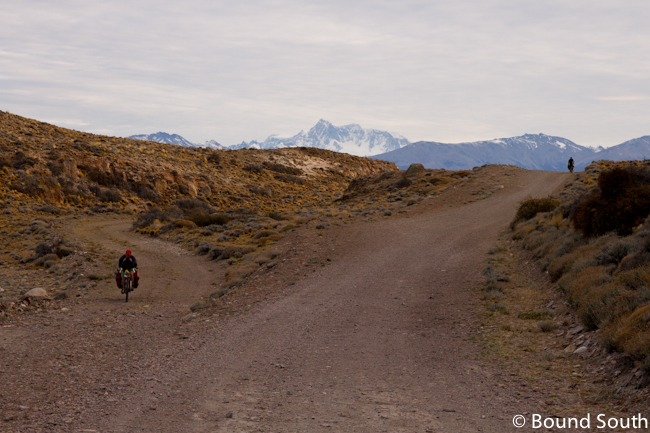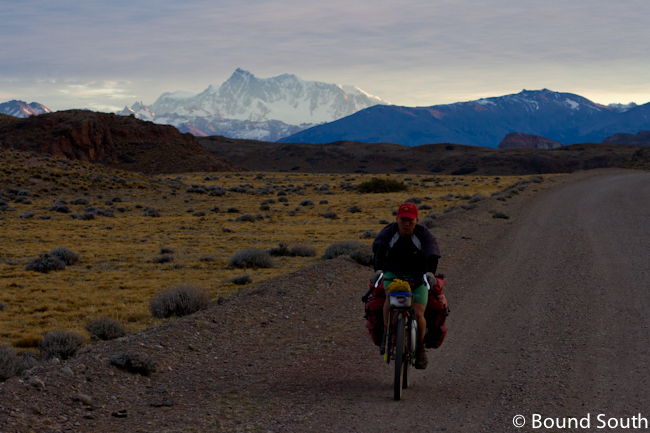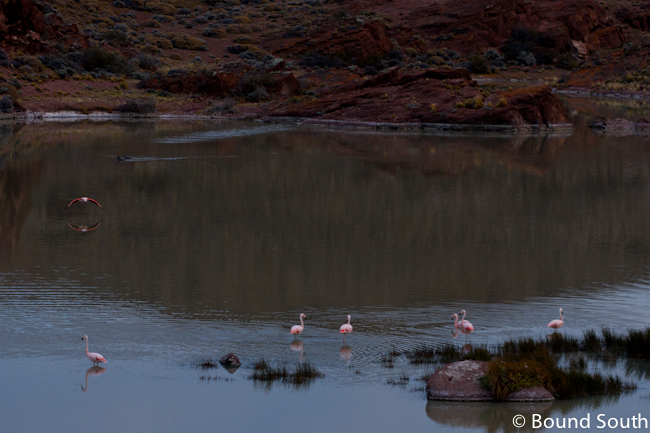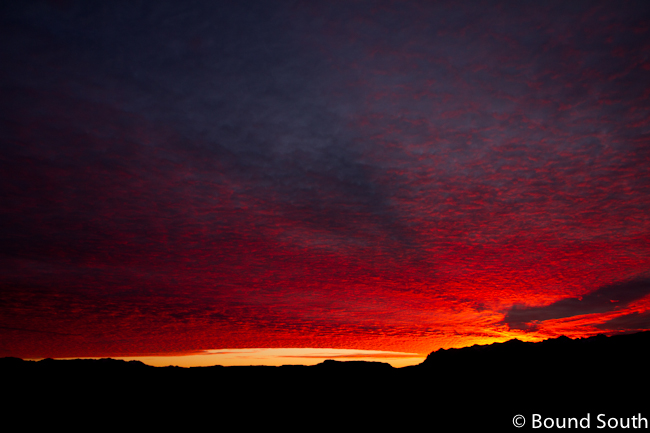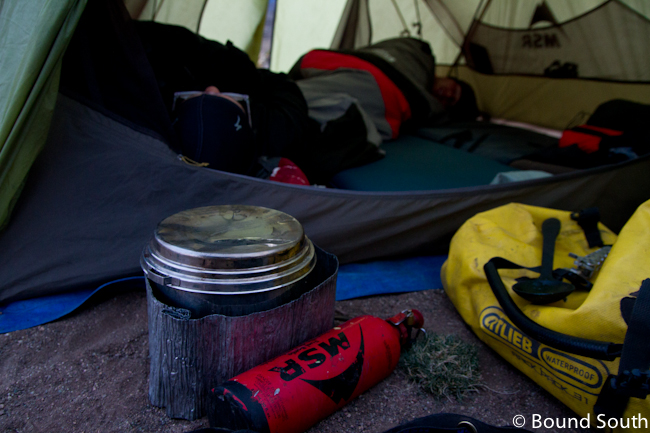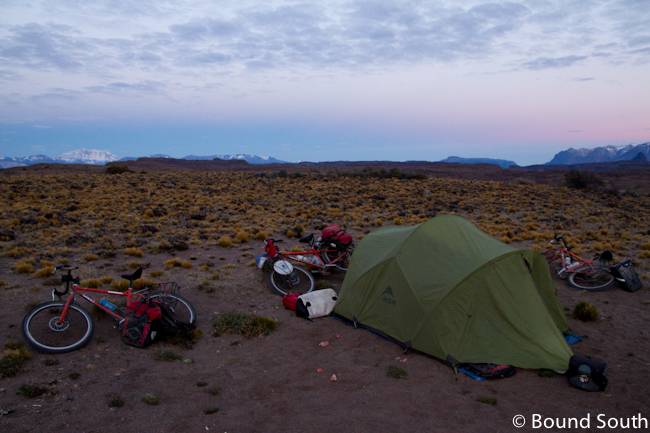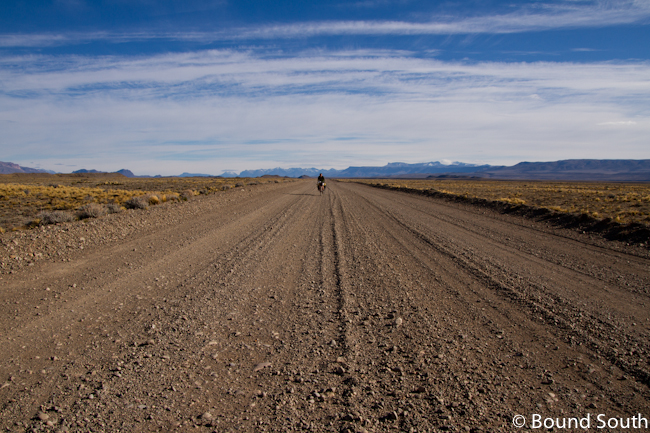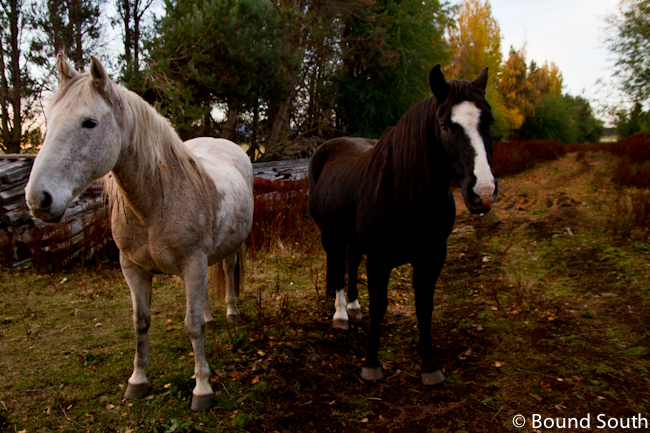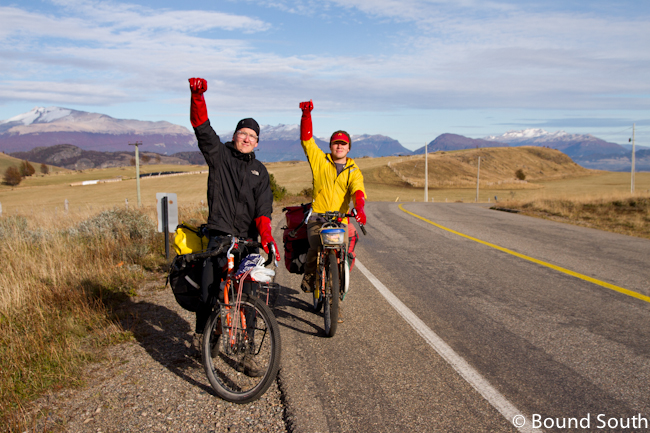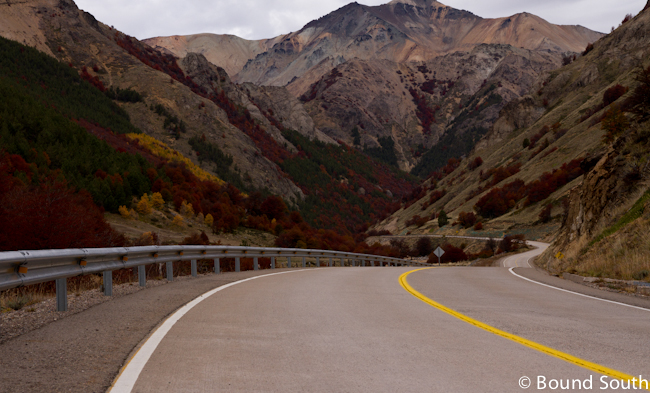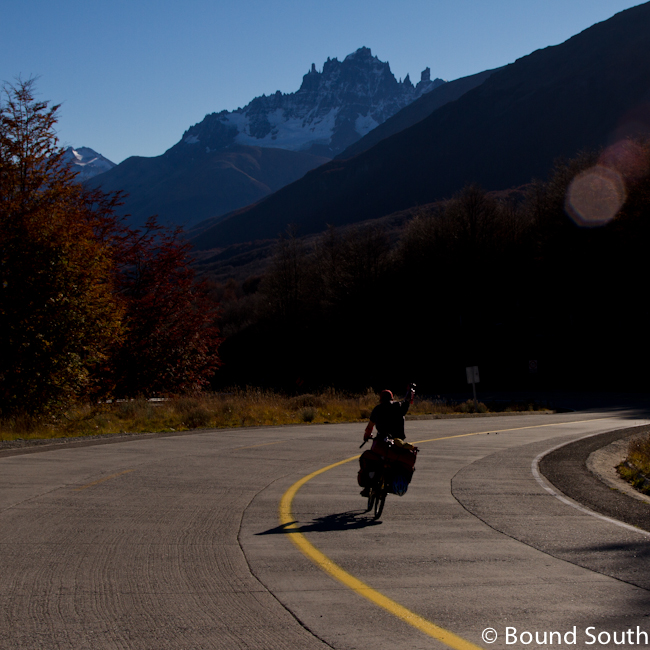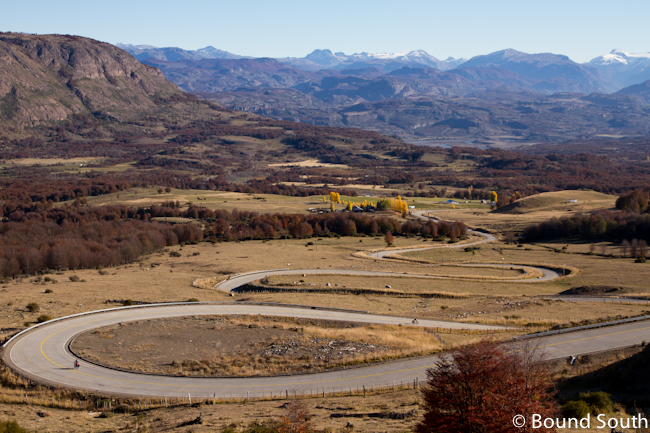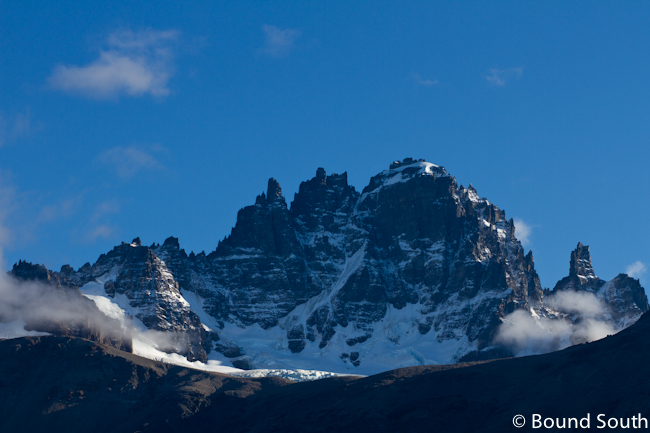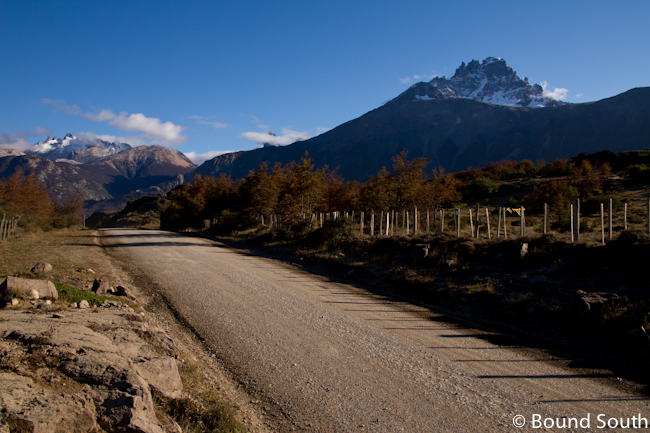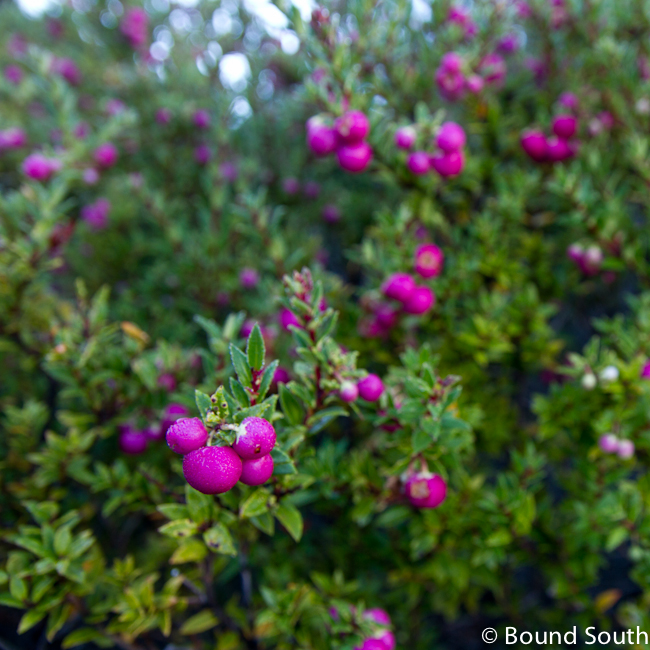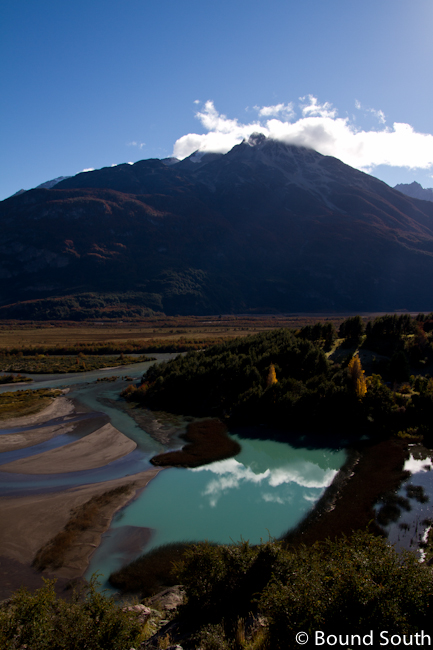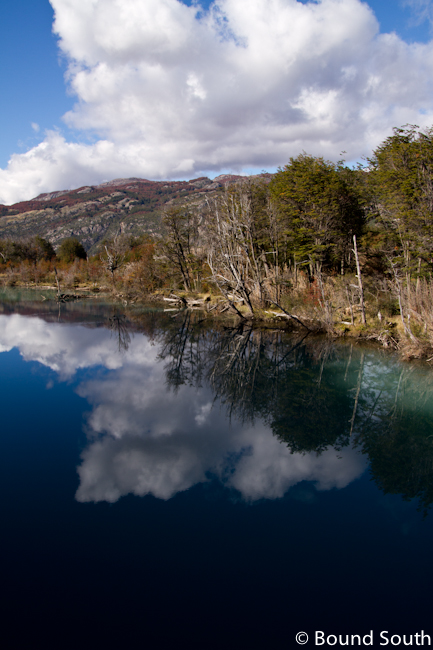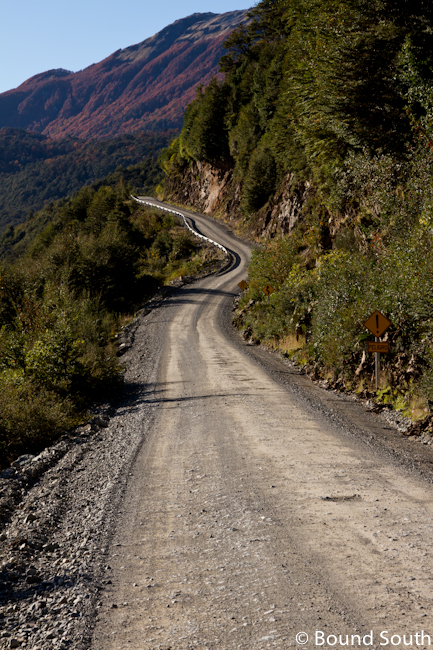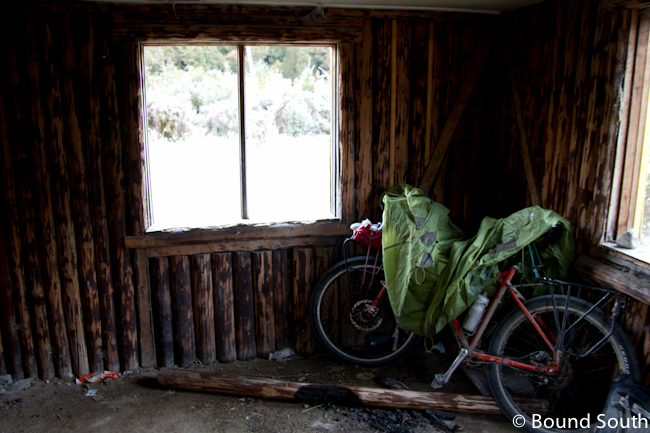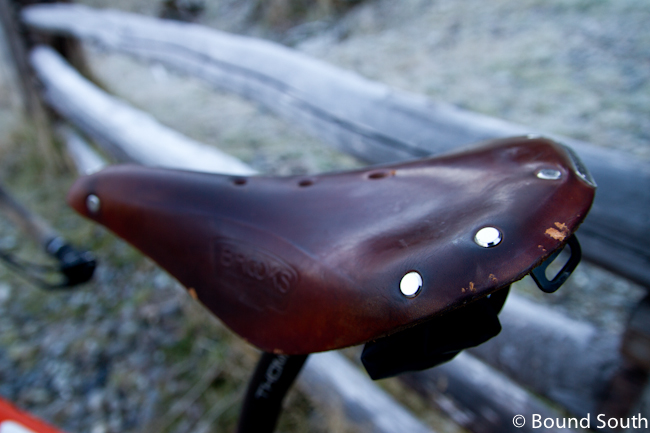When_we_aren’t riding, eating, or sleeping, chances are that we are planning. The exercise of planning anything with my brothers will be one of the things I will miss dearly when we leave Bound South behind. Countless times between Alaska and Argentina, I have found the three of us standing in a circle near our bicycles, bantering at lightspeed in barely intelligible English as we weigh the most efficient, adventurous, and fulfilling means to ride across Colombia, navigate a grocery store, or decide who has to do dishes and who will pack up the tent. There is an loving contentiousness between brothers where the volume and intensity of argument can escalate to near-blows when everyone is tired and hungry and I want to stop for food before camping and Nathan wants to stop to camp before we get food. Frequently, the best-laid plans go awry; the important thing is that everyone is heard and contributes to our course of action.
Sometimes, failure isn’t an option. Bound South made some bold plans to ride across the Austral and Highway 40 in time to meet David’s best friend, Joe Burgum, in El Calafate. Three would become four for the final leg to Ushuaia. Yet stiff winds and washboards and cold conspired to put us 200k behind schedule. After pushing our bodies to the limit, we rolled into a dead-end town on Argentina’s Highway 40 with no way to reach El Calafate on time. We had not seen internet for a week. We had no food. The town had neither, only a gas station with a few overpriced ham sandwiches. And the last bus to El Calafate? It left an hour before we arrived. And due to the Argentine equivalent of Labor Day Weekend, no more buses would run for days. So we were stuck, unable to ride the deficit in time to meet our friend, unable to notify him, and fearing that he would arrive to a strange town with no Spanish skills and no idea if we were dead or gone. We stood in a circle, hungry, despairing, and had few ideas other than dressing in all of our winter gear and waiting on the side of Highway #40 to pray for a truck to hitch with.
We ate some overpriced ham sandwiches sullenly. The owner of the gas station explained that he had a friend who would be happy to drive us for the low, low price of $540 USD. I politely thanked him for the offer, neglecting to tell him that this sum would pay for nearly two months of bicycle adventure. We drifted around the parking lot aimlessly, feeling in our gut that we were in trouble but that somehow things would work out. Three brand new Toyota pickup trucks rolled into the gas station. Loaded to the brim with coolers of food, fishing rods, clothing, Argentine wine, and some of the most gregarious Argentine family that you could possibly imagine. The details run long, but before we knew it we were hurtling across the empty, cold pampas in the back of a pickup truck, camping out at the ranch of an Argentine business mogul, and enjoying Argentine steak and wine and company in front of a fireplace.
The most indelible experiences of a bicycle expedition, just like the most unpleasant, can never be planned or counted upon. We sat in a circle that night as a family, after being filled with steak dinner and a tired by a rugged moonlight hike. Wine flowed and dessert of cheese and jam was served. We sang for our hosts as is our brotherly tradition; a Lutheran hymn and a negro spiritual, “Swing Low, Sweet Chariot.” In a uniquely South American way, the men drank and smoked and held court with some of the most contentious, high-volume, and dramatic conversation that I have ever seen. The topics of conversation were also among the most mundane and entertaining that I have ever seen; why the Argentine Patagonians don’t sing like these fine North Dakotan men, why gas prices are so high, why we don’t ride our bicycles during the night, and what handsome eyelashes David has. The women, young and old, tended to sit to the side and laugh at the spectacle of Bruno, the patriarch of the ranch, shout “Lies! Lies! Lies!” during an absurd conversation about mothers’ insistence on musical lessons for their children, or fall asleep as the conversation thundered into the early morning. North Dakota Lutherans don’t stay up this late, and perhaps we don’t always have as much fun, either. And like a dream it was over too soon, with our bodies and bicycles dropped into the frigid air of El Calafate the next morning.
One of the family men, Jorge, refused to accept our offer to help pay for their generosity. The women had left to use the restroom and do some quick shopping. With the wisdom that can probably only be accrued through years and years of loving a wife and raising daughters, he said, “I don’t want you to give us anything, you have given us so much.” With a wink, he said, “I don’t need anything, but perhaps the women might appreciate something…” and he gestured to the chocolate shop down the street. He was a wise man, indeed. We snuck off to the chocolate shop and purchased some of the most expensive and delicious chocolate that I have ever seen in my entire life. We returned moments later, and as the women returned we presented our gift. In twenty-four hours, we went from hapless gringos to pitied American bicycle vagabonds to charming, courageous adventurer-singers to golden-boys bearing gifts of fine chocolate. The looks and kisses on the cheek good-bye said it all. For a short time, we were a part of their family, and they were a part of our story. The memories of our time with them and that unique, unplanned miracle on Highway #40 stays with us forever.
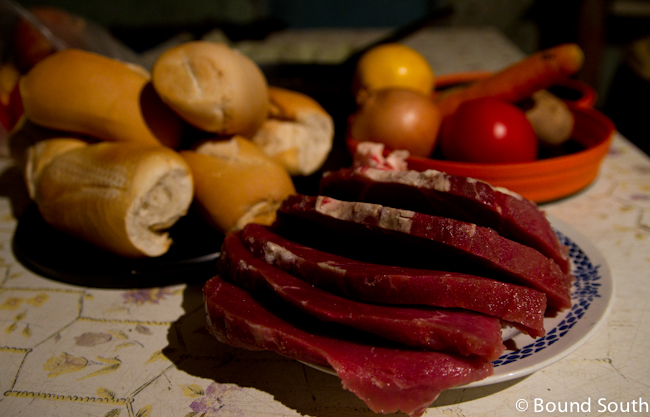
These delicious gifts gave us full tummies and big smiles.
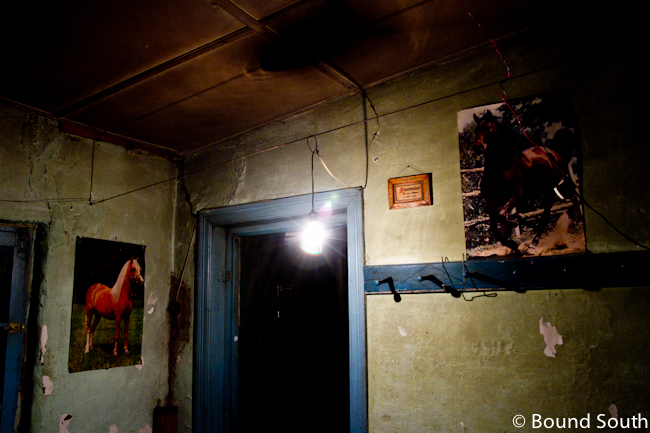
Inside our shack at the ranch.
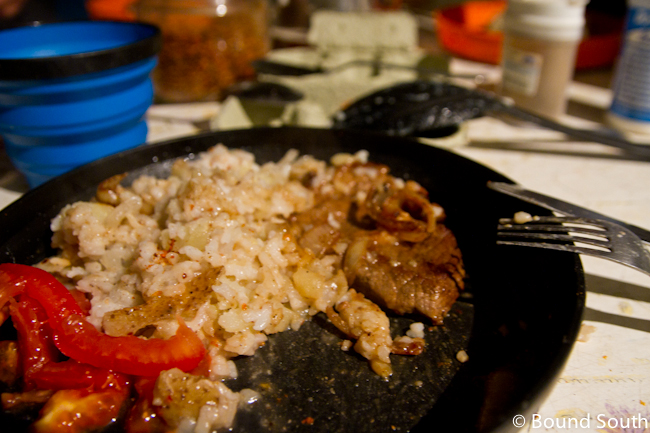
Dinner’s ready!
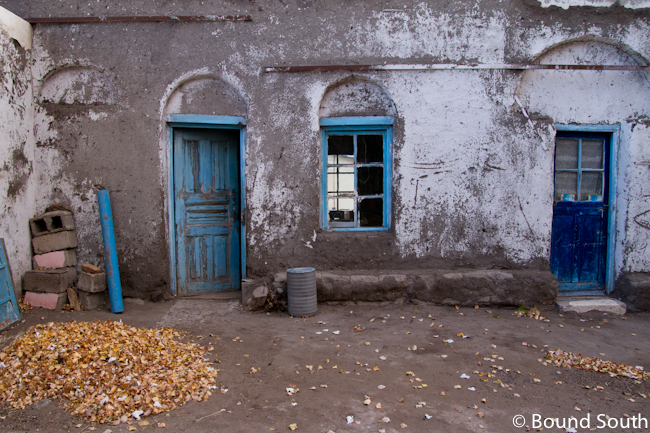
The shack.
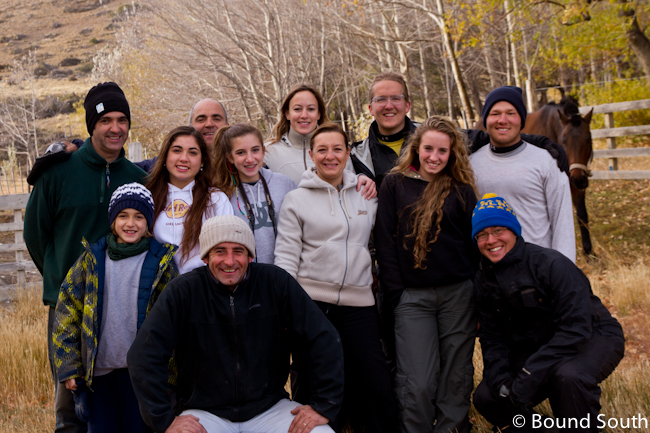
“Whiskey!”

Bruno
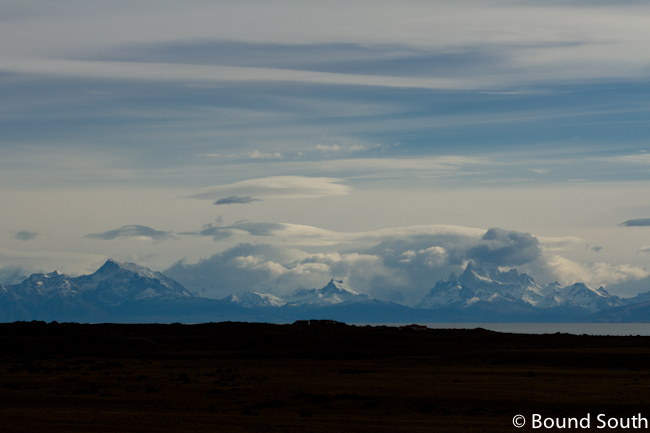
Mt. Fitz Roy on the road to El Calafate






























